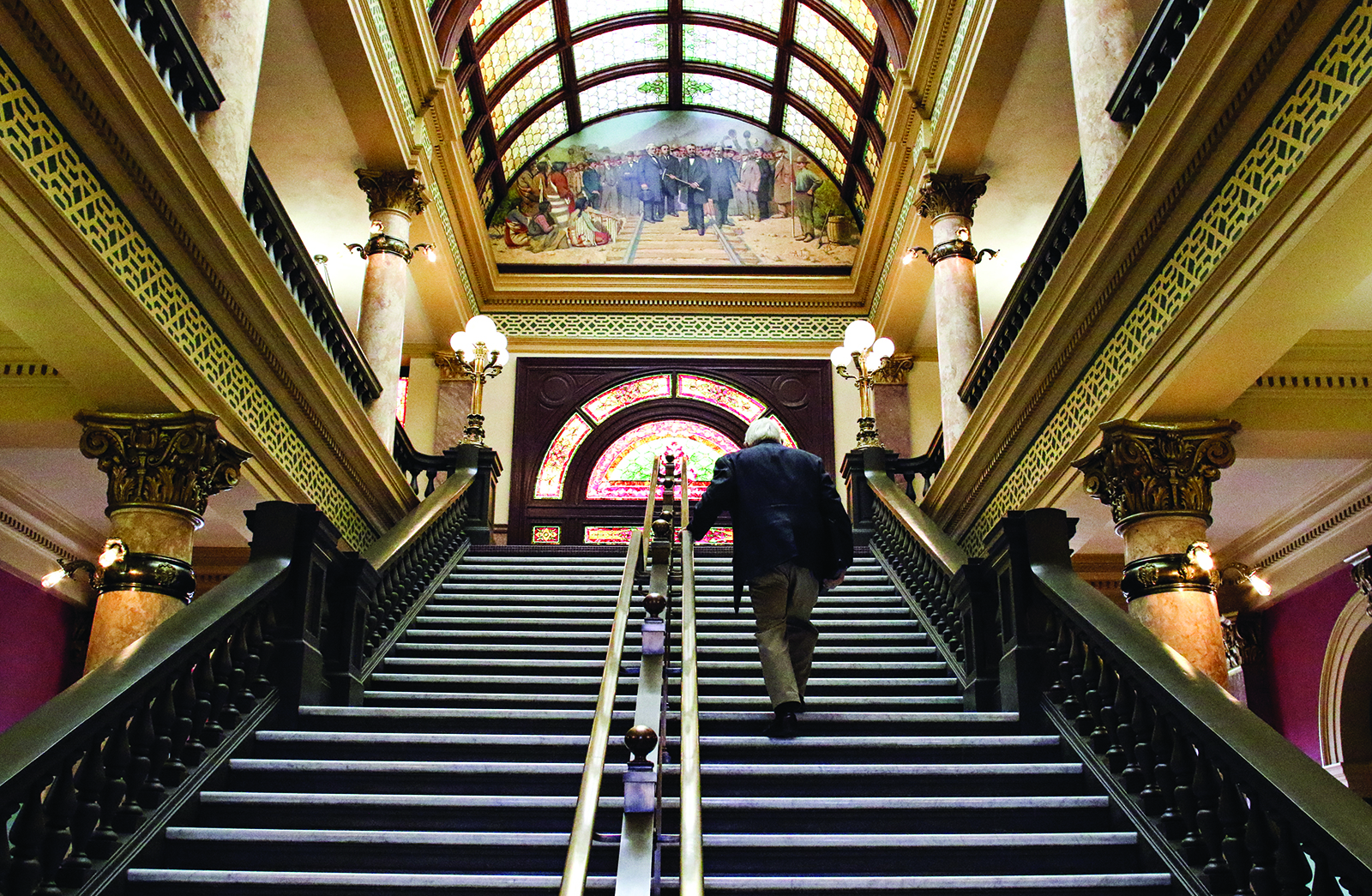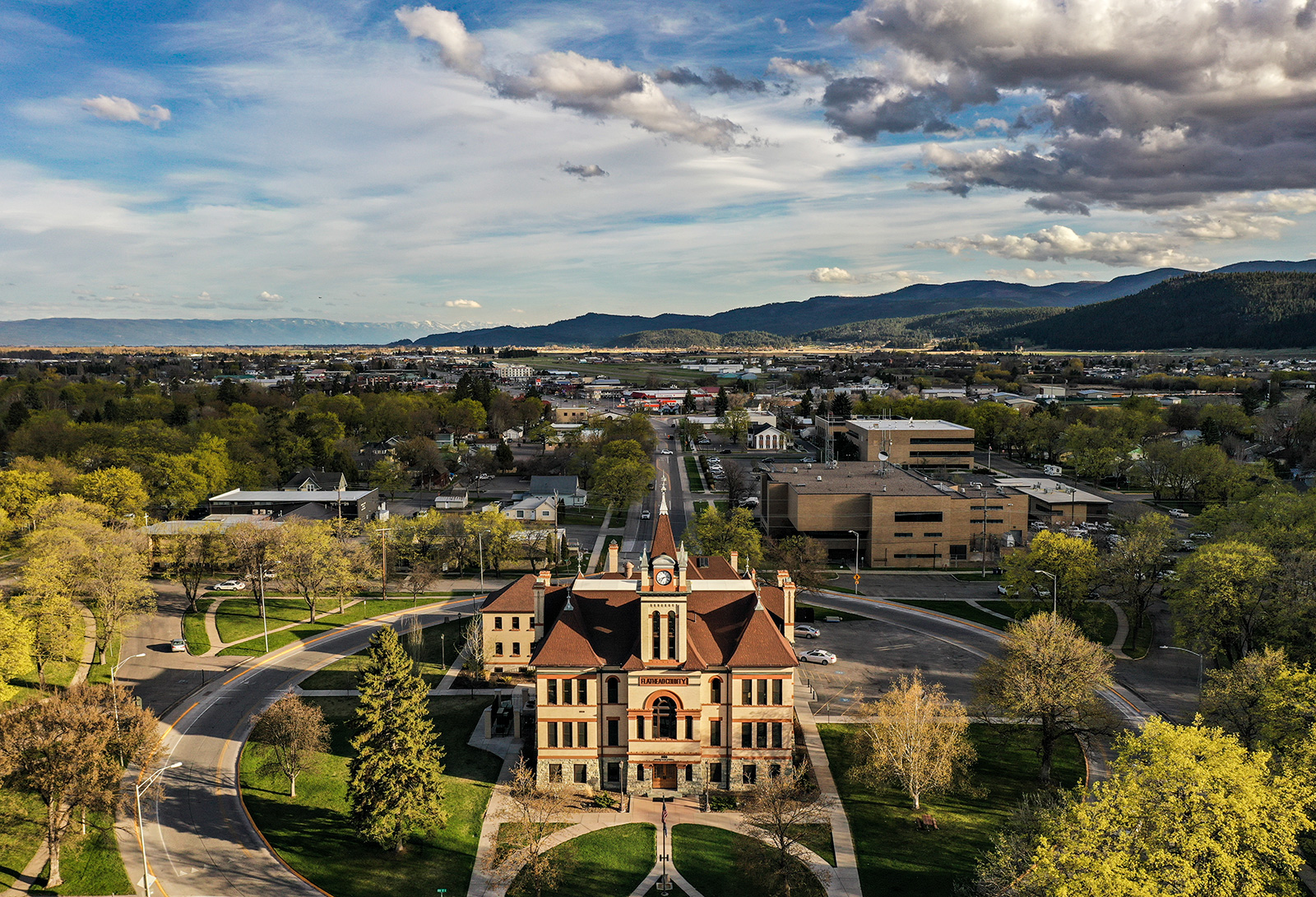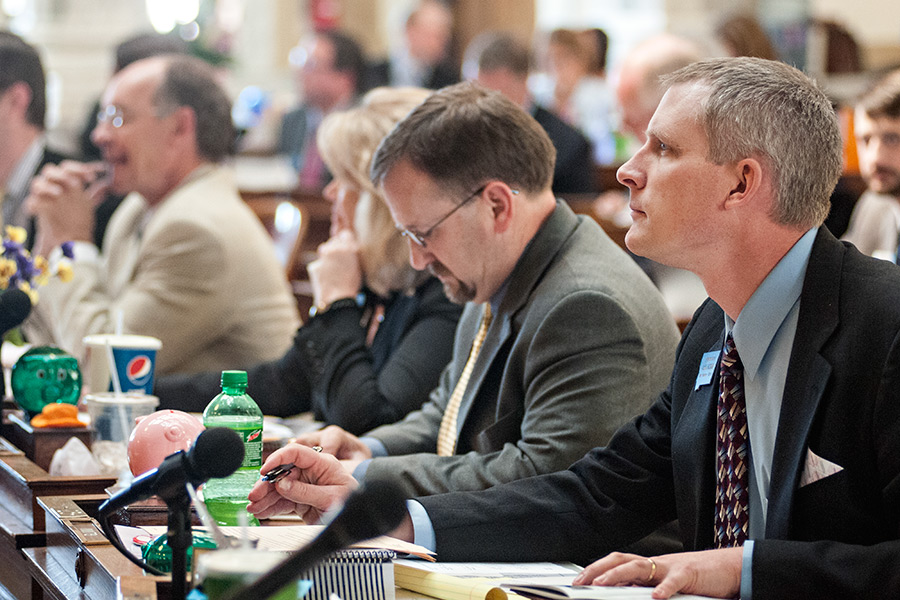Legislators Await Special Session Poll Results as Property Tax Debate Persists
If approved by the majority of lawmakers, the Montana Legislature will meet in January for the 34th special session in its history to resolve ongoing property tax issues
By Denali Sagner
As skyrocketing property appraisals have left state officials and local lawmakers bickering over who is responsible for rising tax bills, the Montana Secretary of State’s office is set to tabulate the results of a poll that will indicate whether or not the state Legislature will gather for a special session.
The Montana Freedom Caucus, a 21-member conservative faction of the state’s Republican Party, published a letter on Nov. 19 calling for a special session “for the purposes of returning a surplus collection of taxes and to address high property taxes alleviating [the] tax burden on the residents of Montana.” In the letter, the caucus called for a return of the 2023 tax surplus to taxpayers, the construction of a “Taxpayer’s Bill of Rights,” clarification on the state’s property tax mill laws, and a reduction in the school equalization mill funding collected each year by the state.
Per Montana Code Annotated, if 10 or more legislators request a call for a special session, the secretary of state’s office must send out ballots to poll the members of the state House and Senate. If the majority of lawmakers approve, a special session will be held to address the subjects specified in the call. Should the majority of legislators approve the call for a special session in 2024, as requested by the Freedom Caucus, the session would begin on Monday, Jan. 15 at 10 a.m.
“The state is flush with cash, so we’re trying to give that back and give some money to the property taxpayer,” Sen. Carl Glimm, R-Kila, a member of the Freedom Caucus, said.
The Legislature has reconvened for a special session 33 times in its history. Gov. Joseph Toole in 1903 called the Legislature’s first special session to appropriate funds for an exhibit in St. Louis, Missouri for the Louisiana Exposition and to maintain the Capitol building for the fiscal years of 1903 and 1904. Gov. Steve Bullock in 2017 called the most recent special session in order to patch a $227 million hole in the state’s budget. Only once, in 1973, has the Legislature called itself to a special session, as opposed to being called by the governor.
The caucus’ call for a special session comes at the heels of months of conflict between Gov. Greg Gianforte’s administration, state lawmakers and local officials, who have clashed over who is responsible for the inflated property tax bills that landed in Montanans’ mailboxes this fall.
The median residential property value in Montana rose 46% between 2021 and 2023 after an influx of pandemic-era migrants turned up the heat on local housing markets, pushing home prices through the roof. The median residential property value rose 45% in Flathead County; 54% in Glacier County; 59% in Lincoln County; and 44% in Lake County, according to the Montana Department of Revenue (DOR).
Rising residential property values have been accompanied by an increase in property tax rates. Across Montana, the median residential property owner this year will pay around 21% more on their taxes than they did last year. According to analysis by the Montana Free Press, increases in residential tax bills will range from $98 to $660 more per year.
Key to the unfolding conflict over who is responsible for property tax increases is the state’s school equalization levy, a longstanding tax program that equalizes educational funds between wealthier and poorer school districts.

Despite the spike in property values across Montana, the governor’s office earlier this year ordered counties to collect a full 95 mills in school equalization taxes, which are set to bring in almost $100 million more in revenue this year than last. The Montana Association of Counties (MACo) in October sued the state over the directive, arguing that the order to collect the full 95 mills violates statutes that cap the amount of taxes the state can collect. Forty-nine of 56 Montana counties, including Flathead County, collected less than 95 mills in an attempt to buck the state’s order and relieve increasing pressure on taxpayers.
In spite of the nearly unanimous pushback by the counties, the Montana Supreme Court in November sided with the state, ordering the counties to comply with the 95 mills order. Counties that collected a lower mill rate in the fall will have to compensate for the deficit in the spring, adding an additional cost to the tax bills straining residents.
The legal battle over the 95 mills raised questions over who is to blame for swelling tax bills and what can be done to remedy the strain put on taxpayers. While the governor’s office has rebuked county and city governments for alleged fiscal irresponsibility, local officials have pushed back against the state, arguing that the governor and Legislature failed to address the property tax crisis during the 2023 legislative session, despite warnings from the state’s tax experts.
“Income tax is generating far more than what they budget, so [the state has] huge surpluses. They don’t use it. They’re not returning the surplus dollars as they said they would,” Ross Butcher, Fergus County Commissioner and president of MACo’s Executive Committee, told the Beacon earlier this month. “When the state itself is choosing to tax far more than what they need to fulfill their obligations on the backs of property taxpayers, it does seem a bit rich that they’re pointing fingers at local government as being out of control.”
Glimm said that the Legislature did not know what the end-of-year tax surplus would amount to and dismissed charges that the body should have addressed tax increases while in session.

In a column in the Beacon, Rep. Dave Fern, D-Whitefish, the Flathead Valley’s only Democratic state lawmaker, wrote that while taxes bills are too high, calling for a special session would not remedy the state’s problems.
“Complicated tax issues require time and robust participation by stakeholders from throughout the state. This special session cannot accomplish such demands as envisioned,” Fern said.
The governor on Dec. 5 announced the formation of a task force to address rising property taxes, which will be tasked with delivering “an actionable plan to rein in property taxes for legislators to consider for their next regular session in January 2025.” Task force members will be named in January.
Though the state’s Republican lawmakers are divided on whether or not to hold a special session, Glimm is optimistic that the majority of legislators will vote to reconvene in January.
“Plenty of us have heard from our constituents that there’s a problem with property tax, and this is an opportunity to go and fix it,” he said.
Completed ballots from legislators must be received by Dec. 29 at 5 p.m. The Secretary of State’s office will finalize poll results within one working day, and results will be posted on the office’s website.
Editor’s Note: A former version of this story identified state Sen. Carl Glimm, R-Kila, as a state representative.